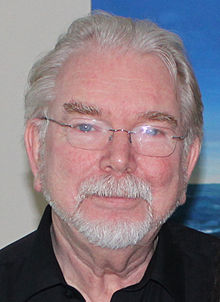IHEU speaks out on the rights of non-believers at Geneva
Roy Brown is an International Humanist and Ethical Union (IHEU) Representative to the UN Geneva.

Roy W Brown, IHEU Representative, UN Geneva
I attended a three-hour seminar on religious liberty and religious minorities recently (10 June 2014) at the United Nations Geneva. The seminar was organised by the International Association for the Defence of Religious Liberty (IADRL) and was co-sponsored by the Council of Europe and the delegations of Norway, Canada, Spain and Uruguay. The meeting was held in one of the larger conference rooms in the Palais des Nations with seating for about 200. It was virtually full.
The speakers included the president and secretary general of IADRL; H.E. Petre Roman, former Prime Minister of Romania; H.E. Laura Dupuy Lasserre, former president of the Human Rights Council; Heine Bielefeldt and Rita Izsak, UN Special Rapporteurs on Freedom of Religion and Belief, and Minority Issues respectively; and six other experts and academics, three from Spain.
The seminar was a follow-up to a meeting held in Madrid in January this year which had adopted a framework for inter-religious dialogue called D5, aimed at bringing together governments, diplomats, religious leaders, academics and NGOs to work together to promote tolerance and respect for “the other”. The group had published a book on religious liberty – a collection of speeches and articles – that was handed out to the participants at today’s seminar.
Most of the speakers focused on the plight of religious minorities around the world while one speaker tried to place religious persecution in its historical context from 1000 BCE via the transition of Christianity from persecuted minority to persecutors in less than 100 years, and on to modern manifestations of intolerance. (There was little reference to current cases of persecution because, I suspect, the speakers didn’t want to be labelled as intolerant.) One speaker did mention the Baha’is in Iran, another the Christians in Egypt and other Islamic states, but that was all.
After listening for two and a half hours to some good speeches but also to some awful waffle, we in the audience were left with exactly ten minutes to make our comments. I was near the front, was able to catch the chairman’s eye and was the first to speak. I introduced myself, and then began:
“Mr Chairman, excellencies, thank you for organising this event and thank you to the members of the panel for your stimulating remarks.
“We believe that Freedom of Religion or Belief and the right to Freedom of Expression are two of the most important issues facing the world today, and they are clearly the source of much of the conflict here in the Human Rights Council. But I was disappointed that only two of the speakers today used the phrase ‘religion or belief’, preferring the phrase ‘religious freedom’, and none of the speakers mentioned the rights of non-believers.
“Our report on freedom of religion or belief published in December last year showed that in virtually every country in the world non-believers suffer persecution or discrimination. We believe in the absolute right of everyone to freedom of religion or belief, and we respect everyone’s right to dignity and autonomy. But why should we be required to respect their beliefs if we find them irrational? And why should our lack of belief be treated as a crime?”
“In this connection we were appalled that at the March session of the Council this year, when presenting their resolution on Freedom of Religion or Belief, the EU delegation again spoke only of discrimination against religious minorities but was silent on the world-wide phenomenon of persecution and discrimination against non-believers. When we challenged the EU delegation on this omission we were told that to have included it would have destroyed the consensus in the Council. But why would the European Union wish to promote consensus with a group who deny our freedom of religion and belief and treat non-believers as criminals, in some cases worthy of the death penalty?”
(I asked this question looking directly at the EU delegate sitting opposite me.)
“My second point concerns a report we saw yesterday that the Spanish Supreme Court had ordered an ex-Muslim to lose his refugee status and be deported because of his criticism of Islam. A lower court had earlier cited the “threat to national security” posed by his criticisms as though it was the critic, rather than those who would be tempted to use violence in response, who was the threat to security. But the Supreme Court went even further stating:
“The right to the freedom of expression does not guarantee the right to intolerant manifestations or expressions that infringe against religious freedom, that have the character of blasphemy or that seek to offend religious convictions and do not contribute to the public debate.”
“Blasphemy? Is Spain about to introduce a blasphemy law? Will it now sign up to the Universal Declaration of Human Rights in Islam?”
The EU delegate was asked to respond to my remarks, but she stuck to her script, restating the EU view that Freedom of Religion or Belief includes the right not to have a religion or to change one’s religion. She ignored my question.
The Spanish professor who then replied had unfortunately misunderstood my point regarding a possible Spanish blasphemy law, believing that the Supreme Court had withdrawn the ex-Muslim’s Spanish nationality, which would have been unconstitutional. As I was leaving the room, the Spanish ambassador cornered me and said much the same thing, but I pointed out that the ex-Muslim was not apparently Spanish, merely a refugee, but that the judgement was nevertheless contrary to Spain’s obligations under the ICCPR.


